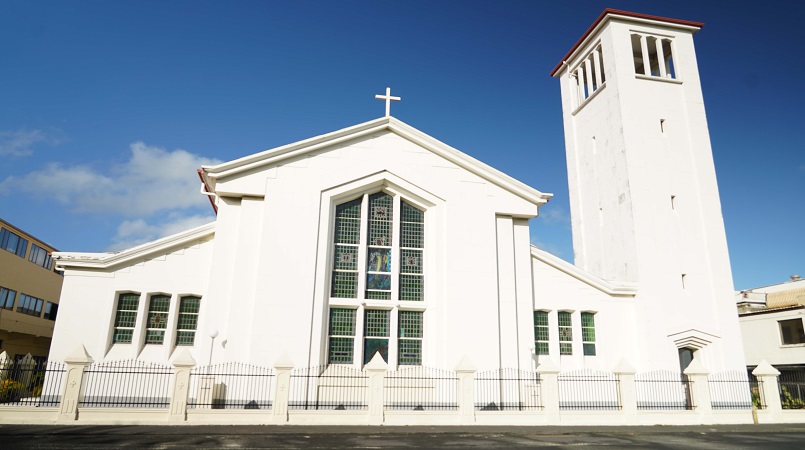
A Samoan church minister is challenging the traditional church view on women's role in the church.
Rev. Dr. Marie Ropeti-Apisaloma says women should be ordained ministers in the church and be given leadership roles.
Ropeti-Apisaloma argues the early missionaries brought a patriarchal view with them that discouraged women.
Her new book Nafanua Theology: A Samoan-Christian argument for women in ordained ministry contests the traditional views on who gets ordained.
“I challenge the church by bringing in the views of men, the colonised people. The missionaries and the fathers of the church, Christian church as such and the way they brought Christianity to Samoa with a very patriarchal idea of the church.”
She also says the hierarchy structure in the Samoan church makes it hard for women to lead.
“I don’t know how you felt when you see only men go up. Only men do this. I don’t know how you look at sexism from your male point of view. But from my view I always look at that and challenge that why are we not up there together with them.
“They call a man and a woman to a parish, and every time the couple is addressed, its always to the man because he’s done his training and because he’s called. And when he was called then the woman just attached to that man is called a helper where it should really be a partnership, where they both trained and preached the gospel in whatever God has offered ministry to them.”
She says Fakasa, which primarily has Methodist churches, doesn’t ordain women ministers, and it was thought that Samoan culture is behind why women are not ordained in the first place.
“I had seen sexism very strong when it comes to leadership. No woman is a lay preacher, no woman is a minister of the church.”
Ropeti-Apisaloma searched Samoan culture and Nafanua to find answers.
“Our culture, Samoa, is a very inclusive culture, when Christianity came, the role of tamaitai Samoa kind of reversed and the church took it like that.”
Ropeti-Apisaloma reflects on her own parents back in Samoa and the challenging life her mother led alongside her father who was a minister at the time.
“My mother, struggled to do the things she wanted to do but couldn’t’ because she was the ministers wife.”
Ropeti-Apisaloma wrote the book, which will be released next week on International Women's Day, after four decades of being a woman in ministry. She says her work must be documented and left for the next generation.
She talks about how Jesus Christ spoke to her through bible passages to pursue a calling of being a minister and “preach the word of God”.
“I follow what Jesus says and what Jesus empowers us to do as human beings. Jesus in John 10:10, I have come so you may have life and have it to the full.
“Well Jesus is talking to me, whether I am a man or I am a woman. This should really imply to the life I should live.
“If am a leader in the church and authorised to preach the gospel, I do it.”
PMN News reports Episcopal Vicar of Education of the Catholic Diocese of Christchurch Fr John Adams says the Catholic church wouldn’t allow women to be ordained as priestesses but would allow women to take up leadership roles within the church. He says that is not because they are not good enough.
“It’s not a discriminatory practice. Church never taught that they are not good enough, or are culturally inferior.”
He says three reasons why the Catholic church doesn’t ordain women ministers: aptness or rightness, suitability, and properness.
“Like someone making a story about Lady Diana and auditioning men for the role. Lady Diana was a woman, and naturally you would a woman play a role.”
The second reason is theological: Jesus is the hidden husband of the church. Scriptures and St Paul talk about a spousal relationship of Jesus and the church, a gender position argument here, he says.
Thirdly, and most compelling, it is that despite Jesus reacted against unjust social conduct of his time he never chose women to be part of the twelve. He chose other women to be companion, who turned to be the most faithful, while men only ran away.
Other denominations allow women ministers include the Anglican church and the Pentecostal movement.
Ropeti-Apisaloma says it is encouraging to see women more involved in such denominations.
